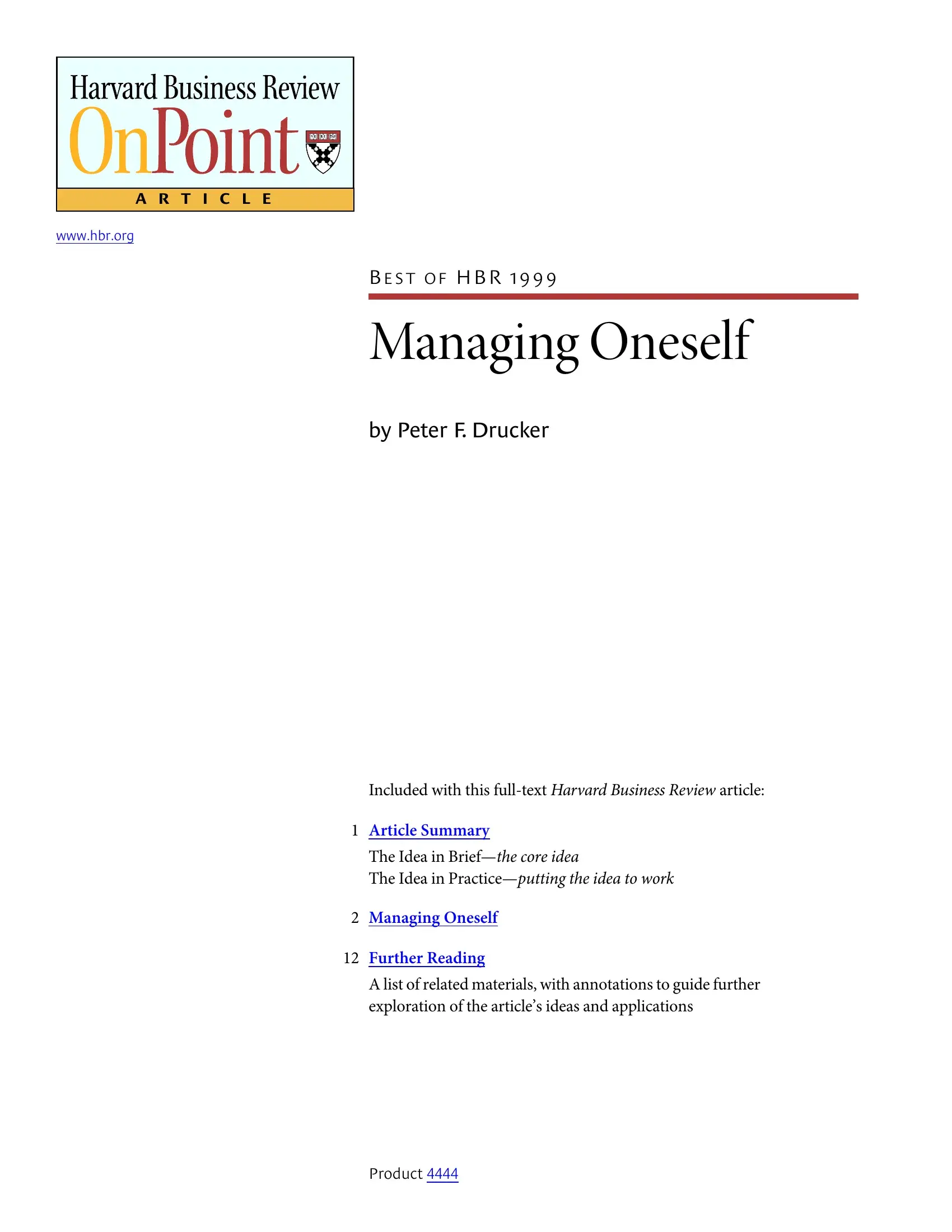managing yourself pdf can be filled out online without difficulty. Just use FormsPal PDF tool to accomplish the job right away. FormsPal professional team is relentlessly working to enhance the tool and enable it to be even easier for people with its cutting-edge features. Uncover an constantly progressive experience now - take a look at and find new possibilities along the way! Should you be seeking to start, here is what it's going to take:
Step 1: Just hit the "Get Form Button" in the top section of this page to open our pdf form editor. This way, you will find all that is necessary to work with your document.
Step 2: The tool provides you with the ability to change almost all PDF documents in various ways. Transform it by including any text, correct original content, and include a signature - all within a few clicks!
When it comes to blanks of this particular PDF, here is what you need to know:
1. You need to complete the managing yourself pdf correctly, thus be attentive when filling in the areas including these blanks:
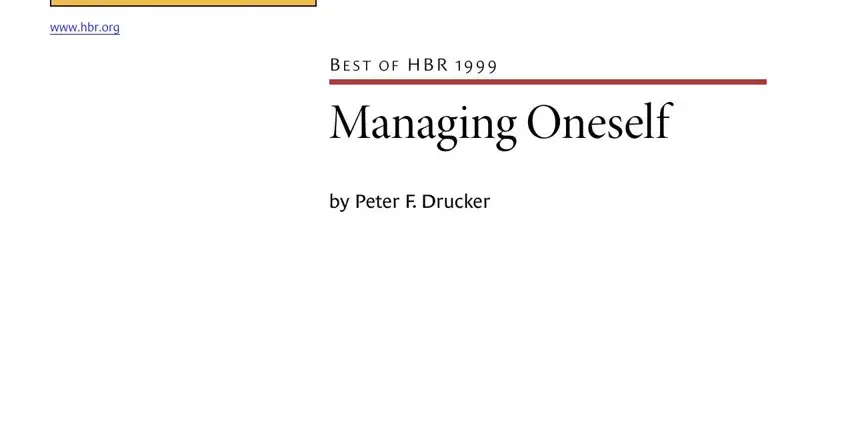
2. After this array of fields is done, you'll want to include the needed specifics in Included with this fulltext, Harvard Business Review, article, Article Summary, The Idea in Briefthe core idea The, Managing Oneself, Further Reading, A list of related materials with, and Product so you're able to go to the 3rd part.
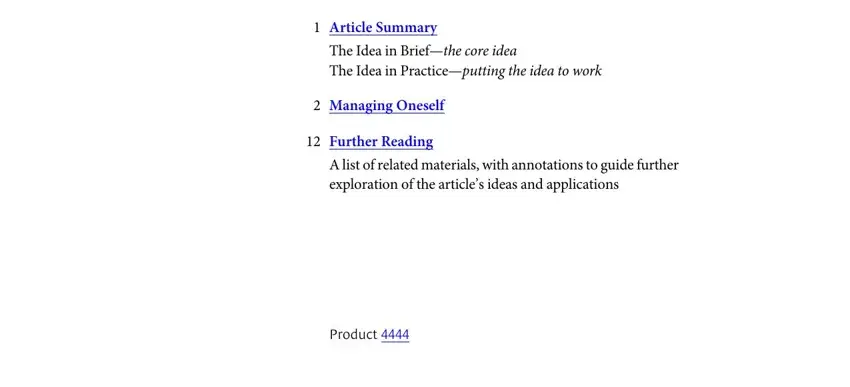
3. This third stage is generally easy - fill out all the blanks in to knowledge workers who have to, But today the opposite is true, mobile The need to manage oneself, Reprint RK Harvard Business Review, and OnPoint to conclude the current step.
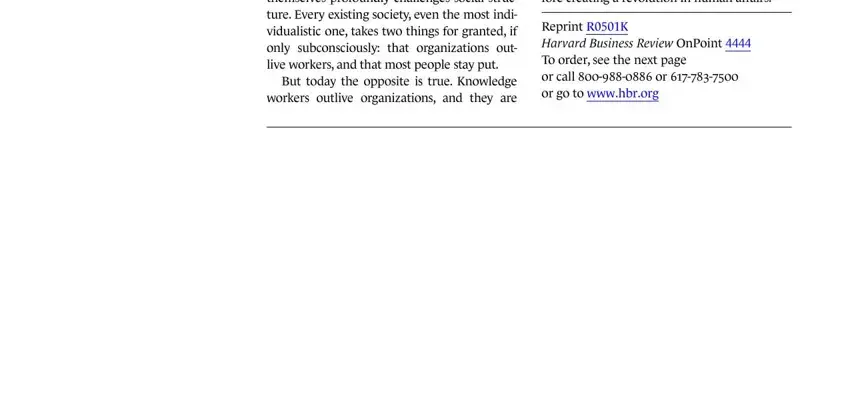
Always be extremely mindful when filling out OnPoint and to knowledge workers who have to, as this is where many people make errors.
4. This particular section arrives with these empty form fields to complete: A R T I C L E S, The PostCapitalist Executive An, Drucker explores the importance of, In todays organizations competence, Drucker also notes that your role, How to Play to Your Strengths by, January Product no RG, Like Drucker the authors of this, and To begin the exercise solicit.
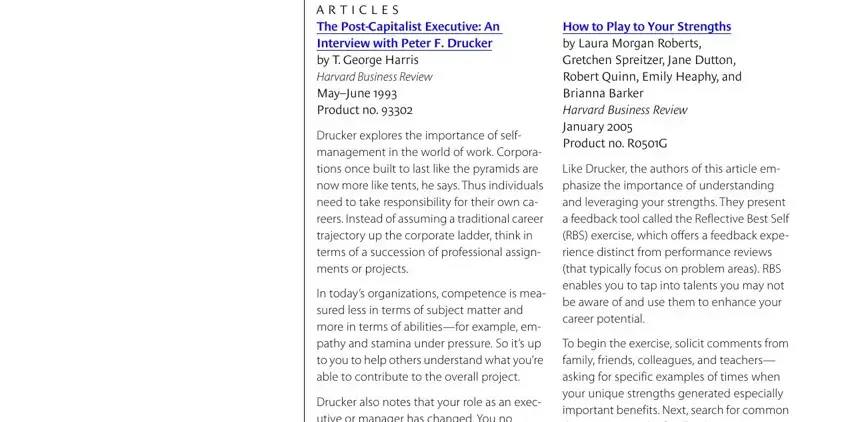
5. As a final point, the following last portion is what you should complete before using the PDF. The fields in this case include the next: page, For reprints OnPoint orders and, Harvard Business, and For customized and quantity orders.

Step 3: Immediately after proofreading the fields and details, press "Done" and you're done and dusted! Try a 7-day free trial plan at FormsPal and acquire direct access to managing yourself pdf - download or edit in your personal cabinet. FormsPal is committed to the privacy of all our users; we always make sure that all information handled by our system is protected.
